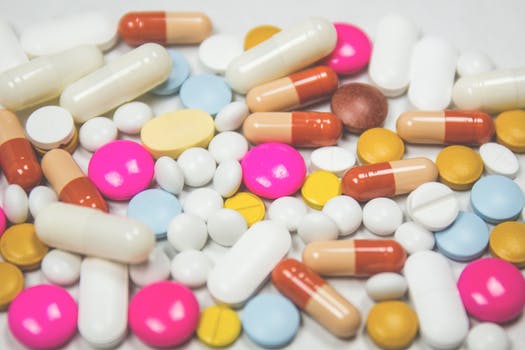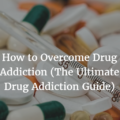Alcoholism is the most extreme form of alcohol abuse and involves the inability of an individual to manage drinking habits. It is also commonly referred to as alcohol use disorder. This disorder could be mild, moderate and severe, each with varying symptoms and harmful side effects. Individuals struggling with alcohol disorder often feel as though they cannot function normally or optimally without the consumption of alcohol. This often lead to a wide range of issues that inadvertently affect family, profession, relationships, job and overall health and well-being. Nearly 17 million people in United States struggle with an alcohol addiction.
Health Complications from Alcoholism
Consuming too much alcohol can have short and long-term effects on your health. Some of these side effects of alcohol may have a minor effect on your health, while others can be very serious or life-threatening.
Short-term Effects of Alcoholism
- Slow reaction time
- Poor reflexes
- Reduce brain activity
- Lowered inhibitions
- Blurry vision
- Difficulty in breathing
- Restlessness
Long-term Effects of Alcoholism
- Brain defects, including Wernicke-Korsakoff syndrome
- Liver disease
- Diabetes complications
- Heart problems
- Increased risk of cancer
- Vision damage
- Bone loss
Alcohol Rehab
Alcohol rehab offers to a unique opportunity for individuals with drinking problems to seek help for alcohol addiction. It is a treatment program consisting basically of 4 phases designed to help individuals overcome their physical, psychological affinity and addiction to alcohol. Drug and alcohol rehab centers provide several rehab options from which individuals can choose. These include inpatient alcohol rehab option, outpatient alcohol rehab option, while many others organizations offer free alcohol rehab.
It is important to note that alcohol rehab is a continuous process and not a one- off treatment program, because recovering from alcohol addiction continues long after alcohol rehab session must have been completed. The majority of people who are successful in long-term recovery from alcohol use disorders treat their recovery as a lifelong process.
What are The Signs that Alcohol Rehab Is Needed?
Most individuals suffering from alcohol disorder do not know they need help in order to overcome their challenge and live a normal life, most times it takes the help of friends and or family to identify the signs that alcohol rehab is needed and help the addict secure the help they need to overcome their alcohol addiction. The following signs are an indication that an individual requires alcohol rehab:
Regularly found seeking drink or intoxicated.
Suffers from chronic depression and anxiety
Seldom get adequate amount of sleep.
He or she is often irritable
Records frequent and alcohol-related falls, blackouts and accompanying injuries
Has poor weight and personal hygiene maintenance issues.
Suddenly starts recording poor academic performance or loss of employment
Trouble maintaining good inter personal or working relationships.
Usually drives under the influence of alcohol (DUI)
Phases in Alcohol Rehab Process
Phase 1: Diagnostics and Evaluation in Alcohol Rehab
Diagnostics and evaluation in alcohol rehab involves the assessment of the frequency and severity of alcohol abuse and the extent of addiction. The diagnostic and evaluation process is critical in alcohol rehab as it provides a platform for the collection and analysis of critical information such as family history, mental health records, medical records, nutritional information, alcohol combined substances abuse and other information that are vital in making decision on best treatment option, duration of treatment and other important decisions that are vital to the success of any alcohol rehab program.
Phase 2: Detox in alcohol Rehab
Detox in alcohol rehab involves the removal from the body of accumulated alcohol related “toxins”, this process is very important in alcohol rehab and alcohol addiction recovery. Detox in alcohol rehab is carried out with the help of psychologists, physicians and other medical professionals due to the potential for serious, uncomfortable withdrawal symptoms which can be potentially life-threatening, if not handled properly. This is because the excessive consumption of alcohol suppresses the brain’s neurotransmitters and once the supply of alcohol is reduced or stopped inside the body, there is an increased tendency for this change to send the body, brain neurotransmitters and blood levels into shock. Patients can expect the following detox symptoms during alcohol rehab:
Symptoms of Detox in Alcohol Rehab
- Seizures
- Irritability
- Vomiting
- Depression
- Anxiety
- Extreme Fatigue
- Sweating
- Nausea
- Mood swings
- Rapid heart rate
- Dangerous dehydration
- Alcoholic tremors
- Delirium Tremens (aka DTs)
Phase 3: Counseling in Alcohol Rehab
Counseling in Alcohol Rehab involves a trained therapist listening and helping the individual undergoing alcohol rehab find ways to deal with emotional issues relating to alcohol addiction. There two types of modes of counseling in alcohol rehab, these are:
Individual Counseling Sessions
These are one-on-one meetings with an addiction treatment counselor during which the issues and events that may have contributed toward alcoholism are explored. During these sessions, patients learn about alcoholism as a disease, alcohol addiction triggers, important coping skills, and healthy routines that are critical for ensuring the success of the alcohol rehab process
Group Counseling Sessions
Group counseling sessions in alcohol rehab can be as small as three or four people, but often involve around seven to twelve recovering addicts in the program. They provide a unique opportunity for sharing life experiences and lessons learned. In so doing, a peer support network develops. During these sessions erroneous thinking and walls of isolation are exposed and addressed promoting healing, healthier living, emotional and therapeutic support.
Aftercare in Alcohol Rehab
Aftercare in Alcohol rehab is a necessary part of treatment for alcohol disorder that lasts much longer than the rehab program. It involves a carefully curated aftercare regimen that provides a coordinated network of support to help a recovering individual maintain and build on the progress made in the first 3 phases of alcohol rehab. This step is the most important of all the processes, for it is during this crucial period that strides made during recovery are reinforced and it also provides an opportunity to do outpatient rehabs test for alcohol. Another major importance of aftercare in alcohol rehab is the prevention of relapse which according to available statistics ranges from 37%- 56% among people with Substance Abuse Disorder (SUD), who currently constitute about 9% of the total population of the United States or 21.5 million people National Survey on Drug Use and Health (NSDUH).
Medications Used in Alcohol Rehab
Sometimes the process of alcohol rehab might warrant the use of certain therapeutic agents. Several medications are used to assist addicts cope with withdrawal from alcohol. In addition, drugs are sometimes used to complement therapy and counselling especially in severe cases of alcohol addiction.
Some of these drugs such as Naltrexone and Acamprosate (opioid antagonists) are uniquely designed to reduce the cravings for alcohol, while others such as Disulfiram (Antabuse) cause one to experience symptoms of aversion if they drink alcohol. The drug is used in alcohol rehab to condition the mind and body to develop an aversion to alcohol. Some of the side effects a patient might experience when using Disulfiram and having a drink include feeling nausea, headaches, hot sweats, and vomiting. In general;
.
- Benzodiazepines: are considered the first line of treatment for alcohol withdrawal.
- Baclofen: This drug is a muscle relaxant that can reduce cravings for alcohol in people in alcohol detox treatment.
- Antabuse: While normally not used during the withdrawal management process, this drug is sometimes used in people who have had multiple relapses or for people in outpatient withdrawal management programs.
How to Recover from Alcohol Addiction
You don’t recover from alcohol addiction by simply stopping the use, you recover by creating a new life where it is easier to not depend on alcohol for “sanity”. If you don’t create a new life, then all the factors and situations that initially made you dependent on alcohol will eventually catch up with you again. In order for alcohol rehab to be successful you must:
Avoid High-Risk Situations – Stay away from people with whom you usually go on drinking spree, or people who you have conflicts with, who make you want to drink, and people who celebrate you while drinking alcohol.
Learn to Relax- learn how to relax your tension without the influence of alcohol by using simple techniques such as going for a walk, to more structured techniques like meditation. These relaxation methods have been proven to change the life of many addicts and helped them recover from addiction.
Manage Stress Properly –Learning how to effectively manage stress is very vital for addiction recovery. Stress management is very significant, because when you are tense, you tend to do what is familiar and wrong instead of what is s new and right. This often lead to relapse into old habits which ultimately promotes addiction and undermines the prime objective of alcohol rehab.
Be Honest –Lies and addiction often go together, because most have to lie about getting drug, using it, and hiding its physical and health consequences. By the time addiction has fully developed, lying has fully become part of life. In order for recovery to be successful, individuals must learn to be honest about what they truly want from life or else they might end up like the many who have paid the ultimate price of substance abuse with their lives.
Alcohol rehab cost
Well-known centers often cost up to $20,000 for a 30-day program. For those requiring 60- or 90-day programs, the total average of costs could range anywhere from $12,000 to $60,000. Outpatient programs for mild to moderate addictions are cheaper than inpatient rehab. Many cost $5,000 for a three-month program. Click This Link to:
Download US National Directory of Drug_Alcohol_Abuse Treatment Facilities
Top Alcohol Rehab / Recovery Helplines
The Recovery Village – Call Toll Free : 877-239-5421
Sea Ridge Alcohol Rehab – 1 -866-777-9614
Project Know – 1-888-892-1840
Rehab 4 Alcoholism – +443452223509 or 0800-111-4108
The Banyans Australia – (+61)1300 -226 -926
Public Health Nigeria an Interdisciplinary public health movement focused on health education, advancing fair public health policies, promoting fitness, healthy diets, responsible behavior, community health and general well-being.












2 Comments